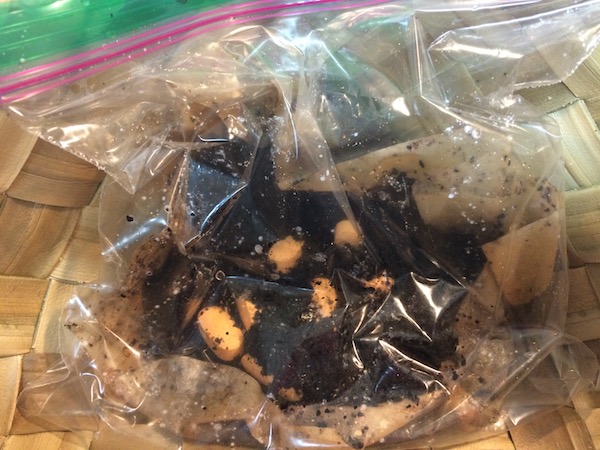How to Dispose of Medicine
Proper Disposal of Medicine
No longer used and expired medications are a problem to keep around as they can be dangerous if they happen into the wrong hands, yet they can also become a problem if not disposed of properly. Therefore, the U.S. government has created a National Drug Take-back day that occurs twice a year in April and October. The next opportunity to participate in National Drug Take-back day will occur on Oct 27, 2018. Use the DEA website to learn about responsible drug disposal and locate a nearby location to visit later this month.
If your medicine cabinet needs to be cleaned out of expired medications you no longer use then make use of this National take-back day. Since medications are ingested and generally carry a “use by” date or an expiration date, we decided to approach the subject. There is some controversy among the experts as to whether to take medications that are beyond these expiration dates. Drug companies perform strict testing of their products for a few years beyond production, verifying that the drugs have not deteriorated at that point. The question is how long beyond this testing do different drugs last? The answer is still uncertain. In the past, the FDA has authorized the automatic extension of expiration dates on certain drugs that were in known shortage by another 6 months! There are also instances where the government has used expired drugs from its stockpile.
First off, don’t just throw away medicine simply because it has reached a printed date. Take a minute to see if it is a lifesaving medication, for instance nitroglycerine or insulin, or any type of antibiotic. Lifesaving medications and antibiotics, because of their purpose, should be full strength when used in order that they can fully do their most important job – without question. Although government tests have been done which show full strength beyond set dates, potency does decline with time. Also, as with foods, proper storage is key to extended shelf life. Therefore, for lifesaving medications at least, full strength may be essential and one should never mess with their life. Properly dispose of these types of medications if they are beyond their printed dates. If the medicine is for something less critical, for instance to relieve pain or stop an itch, then taking something possibly not quite as potent as it once was is more beneficial than taking nothing. Again, be sure the meds were properly stored and untampered.
If you have decided that your medicine is indeed expired, then the next step is to figure out how to dispose of it in a way that is safe for both humans, animals and the environment. We will discuss acceptable methods of medication disposal.
How to Dispose of Medicine
Steps to Properly Dispose of Medicine
To find somewhere to leave any unneeded/unwanted/expired medication simply click here and request a location which will bring up a screen to enter a zip code. This will then bring up a list of nearby sites that will be accepting drugs on October 27th, 2018.
This national day should be utilized, but since this day only happens twice a year in April and October, let’s also look at year round proper disposal methods for drugs. Depending upon the medication, there are three possible options for drug disposal that are approved by the Drug Enforcement Administration (DEA). We’ve listed them here in preferable order.
Take Back Option:
Many community-based drug “take-back” programs offer the best option to properly dispose of medication. [1]. A local pharmacy, fire station or police station can be contacted for more local take-back information on an ongoing basis (other than the 2 national take-back days). The website disposemymeds can help locate options for take-back during other times of the year.
Trash Option:
If no disposal instructions are given on the
prescription drug packaging and no take-back program
is available in the area, then the drugs can be
thrown into the household trash. Most drugs can be
placed into the trash if the following precautions
are taken when doing so:
1) Remove the medication from its original container
and mix it with an undesirable substance, such as
used coffee grounds, dirt or kitty litter. This
makes the drug less appealing to children and pets,
and unrecognizable to people who may intentionally
go through the trash seeking drugs.
2) Place the mixture into a sealable bag, empty jar
or other container to prevent the drug from leaking
or breaking out of a garbage bag.[2].
3) Seal the bag and place it into a covered trash
can.

Flushing Option:
Only certain medicines are acceptable to flush. Medicines on this special list are drugs that would be extremely dangerous if they were to ever get into the wrong hands (or actually anyone other than the prescribed patient). These listed medicines should have specific disposal instructions on their labeling or patient information leaflet stating to immediately flush them down the toilet when they are no longer needed.
Remember that the trash option mentioned above is preferred disposal for all drugs that are not on this special list and the take-back option is the overall preferred medication disposal method when available.
A few more notes about drug disposal
What about the drug container?
Most prescription medicine containers are recyclable
and can be placed into a regular recycling bin. Be
sure to scratch out or tear off any personal
information on the medicine container prior to
recycling in order to protect your identity and
privacy.
Don’t give your medicine to friends or
family.
Doctors prescribe medicines based on a persons
individual symptoms and personal medical history.
Something that works for one person could be
dangerous for another person.
Read the instructions that came with the medication. Proper disposal for the medication will be listed in these information sheets.
A pharmacist is a great resource.
Use them to ask anything about a specific drug,
including proper disposal if it is no longer needed.
Over-the-counter drugs should be disposed of in the same manner as prescription drugs.
Inhalers and aerosol products can be especially
dangerous if they are ever punctured or caught in
a fire.
To insure a safe disposal that complies with local
laws for these drugs, check with the local recycling
facility.
How to Dispose of Medicine
Additional Information
For help deciding if a medicine has truly expired, see our aspirin page.










